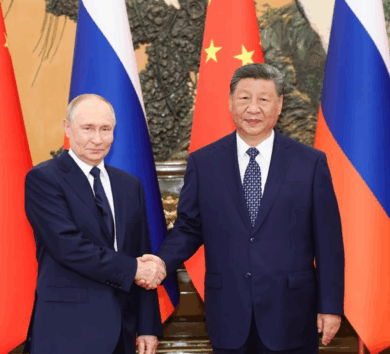

China’s new regulations on labelling artificial intelligence-generated content (AIGC) officially came into effect on Monday.
Jointly issued by the Cyberspace Administration of China (CAC) and three other departments, the rules stipulate that all AI-generated text, images, audio, video, virtual scenes and other content must be explicitly or implicitly labelled on dissemination platforms.
Platforms are required to review content before release, identify AIGC markers, and add risk notices to unidentified or suspected AIGC in order to curb the spread of false information, according to the regulations.
Zhang Jiyu, executive director of the Renmin Law and Technology Institute at Renmin University of China, told China Media Group that the regulations outline three levels of review.
“If the platforms detect implicit markers from the metadata of contents, they can then label them as AI-generated. However, if the platforms merely infer through some algorithms that the contents are generated by AI, the contents should be labelled as suspected AIGC,” Zhang said.
Since current technological limitations may result in some original content being wrongly flagged as AI-generated, Zhang emphasised the need for mechanisms to safeguard the rights of creators.
China has tightened regulations on AI misuse this year. In April, the CAC launched a three-month campaign targeting practices such as AI face-swapping, AI voice imitation and failure to label AI-generated content. In June, the CAC reported that over 3,500 problematic AI products, including mini-programs, apps and agents, had been handled, more than 960,000 pieces of illegal or harmful information removed, and about 3,700 accounts dealt with.
The push for generative AI labelling has become a global consensus. China was among the first to legislate in this area: the Provisions on the Administration of Deep Synthesis of Internet-Based Information Services, which took effect in 2023, was one of the world’s earliest regulations to explicitly mandate labelling of generative AI.
Some compare AI to Pandora’s box, offering boundless opportunities but also unpredictable risks.
“Our current situation is like someone keeping a tiger as a pet,” Geoffrey Hinton, known as the godfather of AI, said in a speech at the World AI Conference in Shanghai in July. “A tiger cub can indeed be a cute pet, but if you continue to keep it, you must ensure that it does not kill you when it grows up.
“Generally speaking, keeping a tiger as a pet is not a good idea, but if you do keep a tiger, you have only two choices: either train it so that it doesn’t attack you, or eliminate it. For AI, we have no way to eliminate it.”







Comments